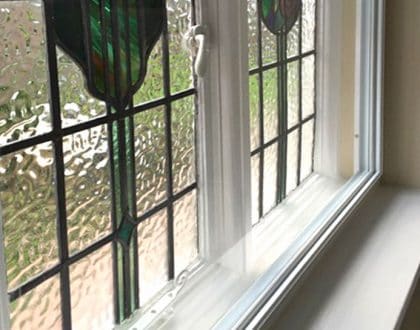Top Tips For Reducing Noise Pollution

Do you live in the middle of a bustling city? Is your home on a busy main road? If so, then you are probably well aware of the frustration and disruption that noise pollution can bring. Whether it’s roaring engines, blaring sirens or honking horns, this noise can have a big impact on your day-to-day life.
Here at Clearview Secondary Glazing, we know how frustrating it can be. That is why, in this latest article, we take a look at some top tips to help reduce the impact of noise pollution.
What is the impact of noise pollution?
While the sound of passing traffic or sirens might seem a mild inconvenience, noise pollution can have a big impact on your health. The World Health Organisation states that noise pollution constitutes continuous noise above 65 dB, and long-term exposure can lead to:
- Physical impact
Noise pollution has a big impact on your physical health, and continuous exposure can lead to a range of issues, including hearing damage, cardiovascular problems and high blood pressure.
- Psychological impact
Not being able to reduce noise pollution can also have a number of psychological effects. Prolonged exposure can increase stress and anxiety levels, disrupt sleep and lower your overall concentration levels.
- Environmental impact
Excessive noise pollution can also impact your environment, disrupting pets and young children and even stopping your plants from growing correctly!
How to reduce noise pollution
Now you know the impact of noise pollution, what can you do to reduce the impact it has on your home?
Upgrade your windows
One of the most effective solutions for minimising the impact of noise pollution is to opt for secondary glazing. This is the process of adding a second layer of glazing to the interior of your existing window, with the cavity helping to act as an independent noise barrier.
The use of secondary glazing is far more effective than other options, such as double glazing, as the design means there is a lack of uniformity in the structure, which greatly improves the dissipation of sound waves.
When you utilise the right specification of secondary glazing or acoustic glass, you will be able to enjoy a reduction of up to 50 dB. That’s equivalent to turning the noise of a passing vehicle into nothing more than a gentle whisper!
Soundproof your doors
Once you have added secondary glazing to your windows, you can further reduce noise pollution by ensuring that you are soundproofing your doors. Using things such as hollow-core doors can block noise between rooms, while door sweeps and acoustic seals prevent noise from leaking through the gaps.
Soften your surfaces
Another top tip for reducing noise pollution is to soften the surfaces in your home. Thick curtains can help to absorb exterior noise, while rugs, carpets and upholstered furniture also soak up ambient sound in echoey rooms.
Looking for secondary glazing in your home?
If you are plagued with external noise and are looking to reduce noise pollution in your home or workspace, then our team here at Clearview Secondary Glazing is on hand to help you. We specialise in designing and producing high-quality secondary glazing systems, and for over 20 years, we have been working with customers across the UK.
So, no matter whether you are a city centre apartment or a roadside bungalow, if you want to restore the peace and quiet to your property, get in touch with our team today to learn how we can help you!
Recommended Posts

Sound advice from Clearview customers.
28/04/2015


